Owning a cockatiel can be a rewarding experience, filled with the joy of avian companionship and the melodic tunes of a feathered friend. However, behind the vibrant plumage and charismatic chirps lie challenges that test even the most dedicated bird enthusiasts.
In this exploration of the avian-human dynamic, we delve into the less-glamorous aspects of cockatiel ownership, shedding light on the nuances that often go unnoticed.
From incessant squawking disrupting peaceful moments to the demanding nature of their social needs, this journey uncovers the worst things about owning a cockatiel.
Buckle up as we navigate the feathers and explore the not-so-sunny side of sharing your home with these charming yet occasionally vexing creatures.
As we embark on this exploration of the challenges tied to cockatiel ownership, it’s essential to approach these feathered relationships with a realistic lens.
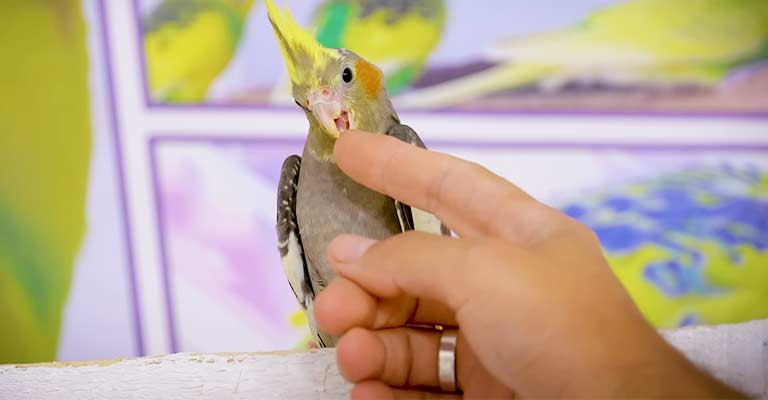
18 Worst Things About Owning a Cockatiel
Owning a cockatiel can be a delightful experience, offering the companionship of an intelligent and charming bird.
However, beneath the surface of those vibrant feathers and endearing chirps lie challenges that prospective owners should be aware of. Let’s delve into some of the worst things about owning a cockatiel.
1. Incessant Squawking
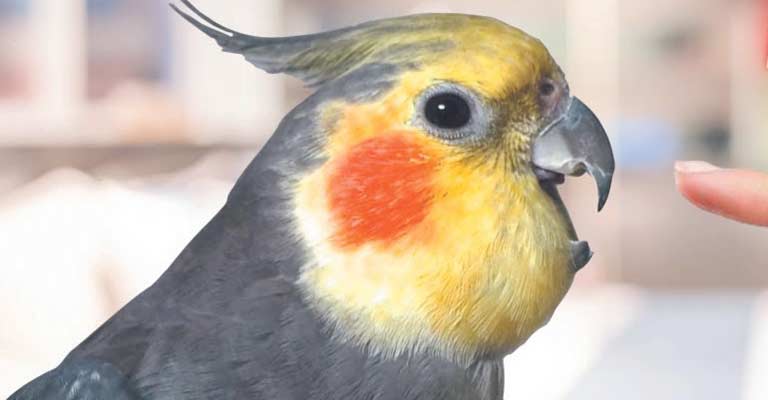
Cockatiels are known for their vocal nature, and while their melodic tunes can be charming, the incessant squawking can be a source of frustration.
Whether it’s early in the morning, during a phone call, or when you’re trying to unwind, the continuous noise can test even the most patient owner.
2. Social Demands
Cockatiels are highly social creatures, and they thrive on interaction. While this is endearing, it can also become overwhelming.
If neglected or left alone for extended periods, these birds can develop feelings of loneliness and boredom, leading to behavioral issues such as excessive screaming or feather plucking.
3. Messiness
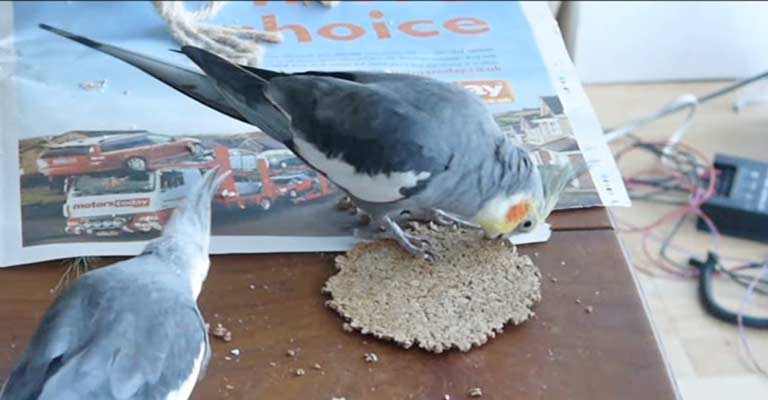
Owning a cockatiel means embracing a certain level of mess. These birds are not known for their tidy eating habits, often scattering seeds and leaving a trail of feathers around their living space.
Maintaining a clean environment requires constant attention and cleaning, which may not be ideal for those who prefer a pristine living space.
4. Destructive Behavior
Boredom can manifest in destructive behavior. Cockatiels may chew on furniture, cage bars, or even their own feathers if not adequately stimulated. This behavior can not only be disheartening for owners but may also lead to health issues for the bird.
5. Time-Consuming Care
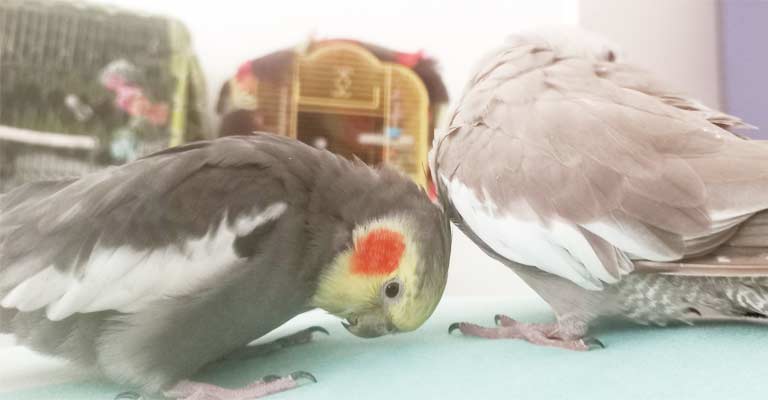
Caring for a cockatiel goes beyond providing food and water. These birds require mental stimulation, social interaction, and regular exercise.
Cleaning the cage, providing fresh food, and engaging in playtime are daily responsibilities that demand a significant time investment. Potential owners must be ready to commit to this level of care.
6. Potential Health Issues
Cockatiels, like all pets, are susceptible to health issues. Respiratory problems, nutritional deficiencies, and infections are common concerns. Veterinary care is essential, and medical expenses can add up over time.
Owners need to be prepared for the responsibility of monitoring their bird’s health and seeking professional care when needed.
7. Lifelong Commitment
Cockatiels have a relatively long lifespan, often living for 15 to 20 years or more. Committing to caring for a pet for such an extended period is a significant responsibility.
Owners must consider the potential life changes, such as moving, changing jobs, or starting a family, and how these might impact their ability to provide consistent care for their feathered friend.
8. Limited Talking Ability
While some cockatiels can mimic words and phrases, they are not known for their extensive vocabulary like some other parrot species. If a talking bird is a priority, a cockatiel may not be the ideal choice.
9. Allergies
Some individuals may develop allergies to cockatiel feathers or dander. This can be a surprising and challenging aspect for owners who were not previously aware of any allergies.
10. Training Challenges
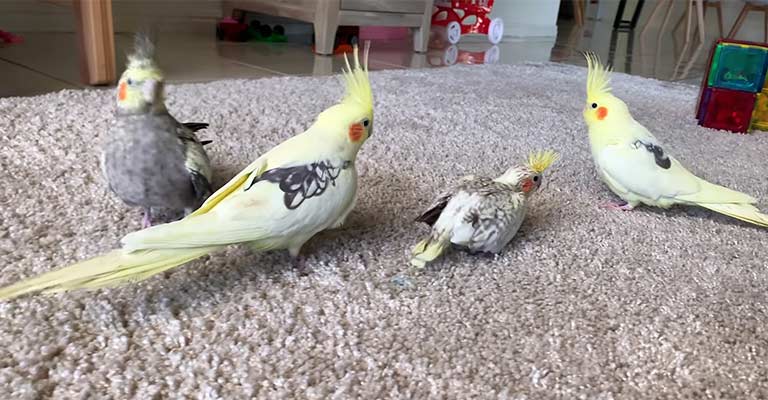
Training a cockatiel requires patience and consistency. These birds can be stubborn, and breaking undesirable habits or teaching tricks may take time. Not all cockatiels are receptive to training, and some may never fully comply with certain commands or behaviors.
11. Nighttime Vocalizations
Cockatiels are diurnal creatures, meaning they are most active during the day. However, some owners discover that their feathered friends may not adhere strictly to human sleep schedules.
Nighttime vocalizations, ranging from soft whistles to louder calls, can disrupt a peaceful night’s sleep. This nocturnal behavior can be especially challenging for owners who value their rest and need a quiet environment for quality sleep.
12. Feather Dust
Cockatiels produce a fine powder, often referred to as feather dust, which is a natural part of their grooming process. While this powder is necessary for maintaining healthy plumage, it can be a concern for individuals with respiratory issues or allergies.
Constant exposure to feather dust might necessitate additional cleaning measures and air purification in the bird’s living space.
13. Potential Aggression
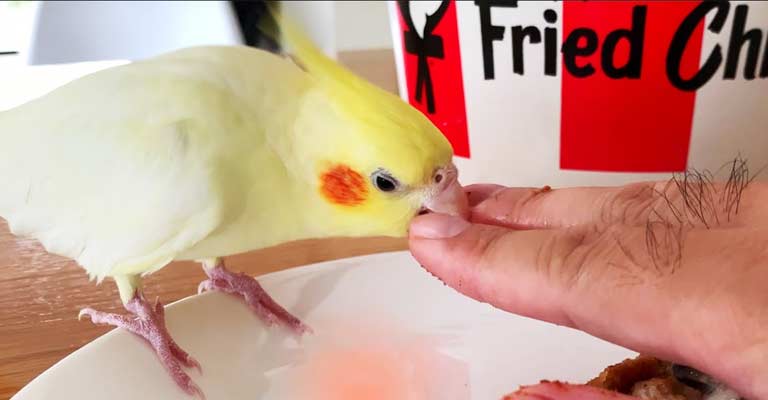
Despite their small size, cockatiels can exhibit territorial behavior and, in some cases, aggression. This may manifest as biting, especially during hormonal periods or when they feel their space is threatened.
Managing and redirecting such behavior requires a nuanced understanding of the bird’s cues and consistent training efforts.
14. Limited Availability of Avian Vets
Finding a qualified avian veterinarian can be challenging in some areas. Cockatiels require specialized care, and having access to a professional with avian expertise is crucial for ensuring their health and well-being. The limited availability of such services can pose a logistical challenge for owners.
15. Emotional Sensitivity
Cockatiels are emotionally sensitive creatures that can be affected by changes in their environment or routine. Events like a move, the introduction of new pets, or even changes in the owner’s schedule can lead to stress and behavioral issues.
Owners must be attuned to their bird’s emotional well-being and strive to provide a stable and nurturing environment.
16. Need for Mental Stimulation
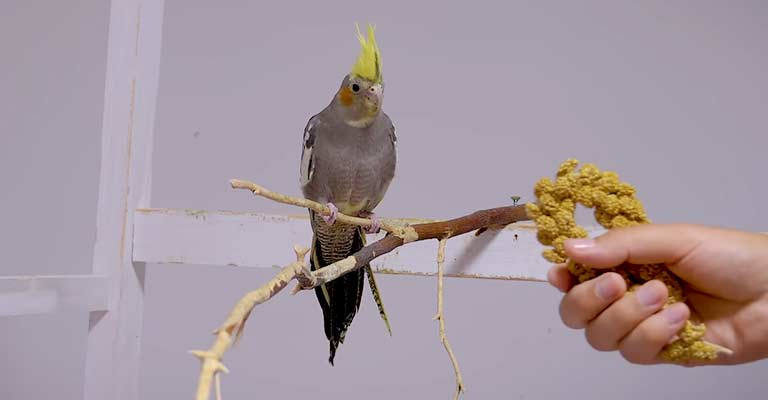
Cockatiels possess high levels of intelligence and require mental stimulation to stay happy and healthy. Lack of mental engagement can lead to boredom and the development of undesirable behaviors.
Enrichment activities, such as puzzle toys and interactive play, are essential to keep their curious minds occupied.
17. Potential for Escapism
Cockatiels are agile birds with a knack for exploration. Their inquisitive nature may lead them to attempt to escape from their cages. Owners need to invest in secure enclosures and regularly inspect for any wear or damage that could facilitate an unexpected bird getaway.
18. Vocal Mimicry Limitations
While some cockatiels can mimic words and sounds, their repertoire is generally more limited compared to larger parrot species. Owners expecting advanced vocal mimicry may find the cockatiel’s abilities somewhat underwhelming.
What Not to Do with a Cockatiel?
Owning a cockatiel comes with a set of responsibilities and challenges, and there are certain actions that should be avoided to ensure the well-being and positive relationship with these intelligent birds. Here’s a guide on what not to do with a cockatiel:
Avoid Neglecting Social Interaction
Cockatiels are highly social creatures and require regular interaction with their owners. Neglecting this social aspect can lead to loneliness, boredom, and even behavioral issues.
Spend quality time with your cockatiel through talking, playing, and gentle physical interaction to foster a strong bond.
Do Not Skip on Regular Veterinary Check-ups
Neglecting routine veterinary care is a common mistake. Cockatiels, like all pets, need regular check-ups to monitor their health and catch potential issues early.
Avoid assuming your bird is healthy without professional assessment, and be proactive in seeking veterinary advice when needed.
Avoid a Poor Diet
Cockatiels have specific dietary requirements, and feeding them an improper diet can lead to health problems. Avoid relying solely on seed-based diets, as they lack essential nutrients.
Provide a balanced diet with a variety of fruits, vegetables, pellets, and occasional treats. Consult with a veterinarian for personalized dietary recommendations.
Do Not Ignore Signs of Illness
Cockatiels are adept at hiding signs of illness, making it crucial for owners to be vigilant. Any changes in behavior, eating habits, or physical appearance should be addressed promptly. Ignoring signs of illness can lead to serious consequences, and timely veterinary intervention is essential.
Avoid Loud or Sudden Noises
Cockatiels can be sensitive to loud or sudden noises. Avoid subjecting them to environments with blaring music, shouting, or sudden loud sounds, as it can cause stress and anxiety.
Create a calm and quiet living space to promote a healthy and relaxed atmosphere for your feathered companion.
Do Not Force Handling
Forcing physical contact or handling your cockatiel when they’re not comfortable can lead to stress and fear.
Allow your bird to dictate the pace of interactions. Gradually build trust through positive reinforcement, treats, and gentle approaches. Patience is key in establishing a bond built on mutual respect.
Avoid Using Harmful Substances
Cockatiels are sensitive to various substances, including household cleaners, scented candles, and aerosols.
Avoid exposing them to these chemicals, as they can have adverse effects on their respiratory system. Opt for bird-safe cleaning products and maintain a well-ventilated environment.
Do Not Neglect Wing Clipping Responsibility
Whether to clip a cockatiel’s wings is a personal choice, but if you choose to do so, it’s essential to do it correctly. Improper wing clipping can lead to injuries and a lack of balance. Seek guidance from a professional or a veterinarian to ensure the process is done safely.
Avoid Excessive Bathing
While regular baths are beneficial for maintaining healthy feathers, excessive bathing can lead to respiratory issues.
Cockatiels should not be soaked or exposed to drafts during wet feathers. Provide a shallow dish for bathing and allow them to dry in a warm, draft-free environment.
Do Not Introduce New Pets Abruptly
Cockatiels may be territorial, and introducing new pets should be done gradually and under careful supervision.
Abrupt introductions can cause stress and fear, leading to potential behavioral problems. Monitor interactions closely and create a safe environment for all your pets.
FAQs
How long do cockatiels live?
Cockatiels have a relatively long lifespan, typically living between 15 to 20 years or more with proper care. The commitment to caring for a cockatiel involves a significant time investment due to their extended life expectancy.
Can cockatiels talk?
While cockatiels are not as renowned for talking as some larger parrot species, they can learn to mimic words and phrases. However, their vocabulary tends to be more limited. Not all cockatiels will talk, and the ability varies among individuals.
How do I prevent my cockatiel from being too loud?
Cockatiels are known for their vocal nature, and while some noise is normal, excessive squawking can be managed. Providing mental stimulation, social interaction, and a consistent daily routine can help prevent boredom-related noise.
What should I feed my cockatiel?
A well-balanced diet is crucial for a cockatiel’s health. Avoid relying solely on seed-based diets, as they lack essential nutrients. Include a mix of high-quality pellets, fresh fruits, vegetables, and occasional treats.
How often should I clean my cockatiel’s cage?
Regular cage cleaning is essential for maintaining a healthy environment. Clean food and water dishes daily, and perform a thorough cage cleaning at least once a week. Remove uneaten food, and droppings, and replace cage liners to prevent the buildup of bacteria.
Conclusion
The journey of owning a cockatiel is a multifaceted one, encompassing both the delightful and the demanding aspects of avian companionship.
While the allure of their affectionate nature and entertaining antics is undeniable, the challenges, such as incessant squawking, the intricate social needs, and the inherent messiness, should not be overlooked.
However, amidst the trials, there exists a unique and rewarding bond forged between humans and birds. The melodious tunes, the animated dances, and the moments of shared connection create a tapestry of experiences that can be profoundly enriching.
The key lies in approaching cockatiel ownership with realistic expectations. For those considering welcoming a cockatiel into their lives, it’s essential to weigh the joys against the challenges and to embrace the responsibilities that come with avian companionship.
With patience, understanding, and a genuine love for these charismatic creatures, the trials of owning a cockatiel can be navigated.